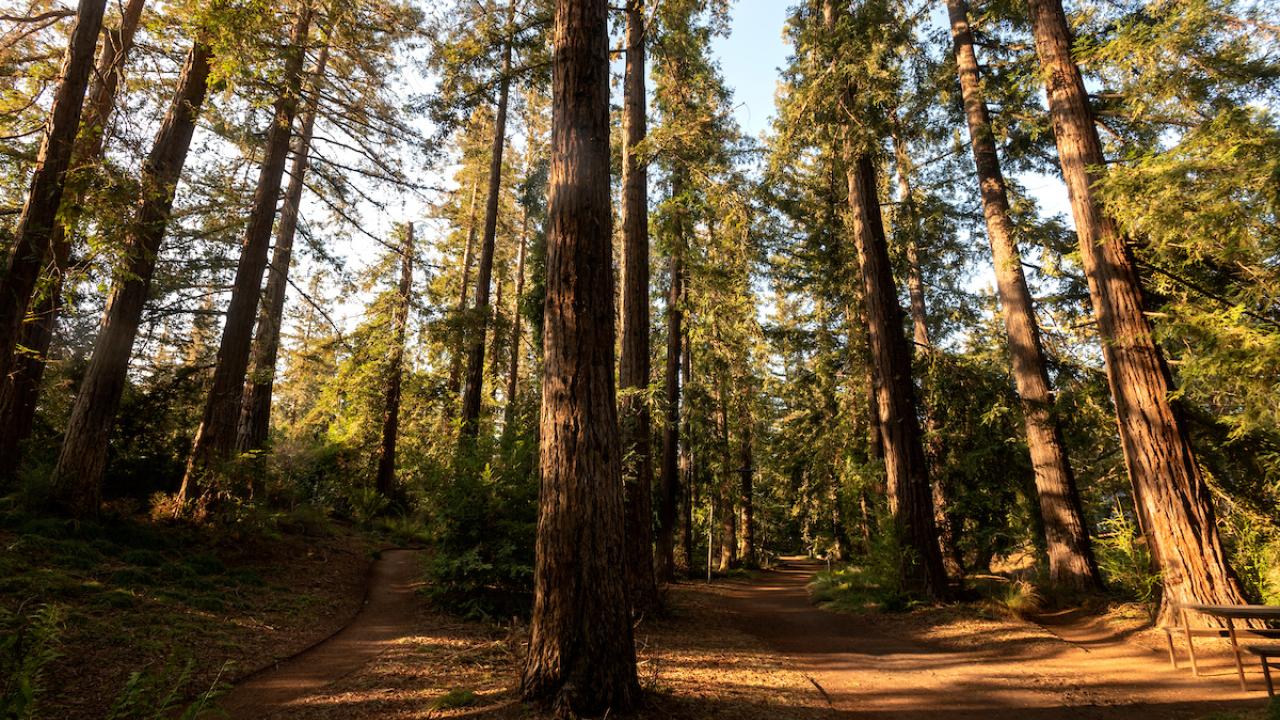
UC Climate Resiliency Workshop
Hello, everyone! It’s a pleasure to welcome you to the UC Agriculture and Natural Resources, UC Davis and UC Davis Health Climate Resiliency Workshop. First, we should take a moment to acknowledge the land on which we are gathered. If you’re from the Davis campus or ANR in Davis …
For thousands of years, this land has been the home of Patwin people. Today, there are three federally recognized Patwin tribes: Cachil DeHe Band of Wintun Indians of the Colusa Indian Community, Kletsel Dehe Wintun Nation, and Yocha Dehe Wintun Nation. The Patwin people have remained committed to the stewardship of this land over many centuries. It has been cherished and protected, as elders have instructed the young through generations. We are honored and grateful to be here today on their traditional lands. If you’re on the Sacramento campus … The history of the Sacramento area, and the people, is rich in heritage, culture and tradition. This area was, and still is, the Tribal land of the Nisenan people. Sacramento was a gathering place for many local tribes who have lived throughout the Central Valley and the foothills for generations and were the original stewards of this land. We would like to acknowledge the Southern Maidu people to the North, the Valley and Plains Miwok Peoples to the south of the American River. We would also like to honor the Patwin Wintun Peoples to the west of the Sacramento River. We acknowledge that we are standing on the tribal lands of Sacramento’s Indigenous people.
Now, I want to thank everyone for being here today and for your ongoing work to do address resiliency and climate change. These efforts at the local, regional and global levels are more important than ever. The science is clear. Our planet is warming and we are seeing significant impacts, including extreme weather, extended periods of drought, sea level rise and species extinction. There’s no better place to have these conversations than at UC Davis. We’re proud to be a global leader in climate change research and sustainability. For 4 years in a row, UC Davis has ranked #1 in North America for sustainability, according to GreenMetric World University rankings. UC Davis is applying its collective strengths in science, engineering, art and design to the problem of climate change and a warming planet. Research is happening everywhere — in the air, at sea, and on land. Researchers at UC Davis, and at our sister UC campuses, are revealing the many impacts of rising temperatures on the atmosphere and environment. Because we’re committed to diversity, equity, inclusion, and to social, racial and environmental justice, UC Davis is committed to furthering the UN’s Sustainable Development Goals. UC Davis faculty, students and staff are actively engaged in addressing all 17 goals across more than 80 countries. These goals are crucial if we want to promote human rights, inclusive development and good governance … if we want to end poverty, hunger and disease … if we want to combat the devastating impacts of climate change. To meet the challenge of the UN Sustainable Development Goals by 2030, we’ll need to focus on all of these areas, and more. I’m proud that this year, UC Davis published its first campus-wide SDG Voluntary University Review. This will help us better understand our campus strengths, challenges and progress within the globally recognized framework of the UN SDG’s. The focus of your discussions today will be SDG 13: Climate Action. Your work is vitally important to advancing this goal. I’m pleased to see that you’re looking at climate resilience through a diversity and equity lens. COVID-19 demonstrated the need to consider the impacts on underserved communities. The pandemic exposed not only our society’s gaps in healthcare, but also the deeply imbedded social, cultural, and economic inequalities that lead to higher mortality rates in marginalized communities. Similarly, we need to consider the consequences of climate change on communities that are marginalized due to race, gender or economic inequities. Today, you’ll consider those who may be most impacted by climate change and by UC Davis’ adaptation to climate change. You’ll work collaboratively to develop a shared vision and explore diversity and equity within the framework of SDG 13. And you’ll identify strategies and action steps. I’m always optimistic when I see collaborations such as this. We need to work together if we’re going to solve the immense challenges of climate change and sustainability. In closing, I want to thank all of you for your commitment to these crucial issues. I applaud your dedication and your passion for addressing climate resiliency and making our society — and our planet — better.